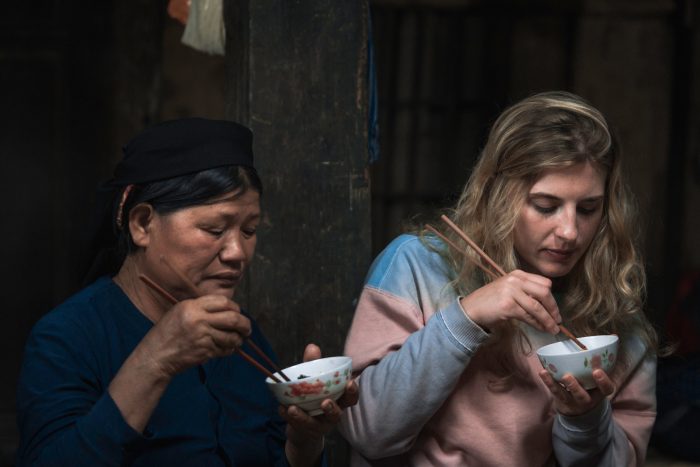“You and I are not what we eat, we are what we think.” ~ Walter Anderson
~
Vegan, organic, keto, paleo, pescatarian, vegetarian, gluten-free, dairy-free, sugar-free—the list goes on and on for the labels we use to describe ourselves, signified by the foods we eat.
An ex-beau once referred to me as “granola girl,” which was ironic because I didn’t even like granola. It was merely a way for him to categorize me. Conscientious with how I choose to live my life, I ate healthy, recycled, practiced yoga, at one point even lived off the grid. For him, the label represented not only my eating habits but also my mindset.
However, he was not wholly accurate; it was not the whole of me. I drove a sports car, I wore leather shoes, I drank alcohol, I swore, and I would occasionally binge on something decadently unhealthy.
Our diets have become a calling card to describe the more significant part of who we are, as polarizing as our political or religious views. It is a way to separate and to exclude, with potentially a desire to make one feel superior over those with different tastes and needs. These are the qualities I, as a “granola girl,” would avoid.
Veganism is the current rage, and with it, those touting the world be a better place if we all gave up eating animals or anything related to them. But is it true?
When we begin anything new and think it’s the bomb, we want to share the news, we are excited about it and want everyone to join in. Our views become self-righteous, and with righteousness comes rigidity. When we make a judgment, we close our eyes to seeing other points of view. We get stuck.
The naysayers of worldwide veganism are growing in number, citing how veganism will throw everything out of balance, not to mention the consequences of those with nutritional concerns. Indigenous people eat a diet primarily of whale meat. At the same time, Tibetan monks are mainly vegetarian, except for those living on higher plateaus who eat meat since vegetables are not available.
Do we judge those who eat according to their environment less worthy? I should hope not. Then why, in our privileged Western society, have we become so judgmental?
What we eat can optimize our health and play a large part in our lives overall, yet, it is not a barometer for good or bad, right or wrong. Eating a specific diet will not allow us to reach a heightened state of consciousness, contrary to some beliefs.
Nearly 50 years ago, I stopped eating meat. It was a personal choice. All of my family and funnily, most of the men I have dated have been meat-eaters. Their bodies need it; mine does not.
To eat meat does not make one less than someone who doesn’t. To not eat meat doesn’t make one healthier than someone who does.
From all of the food fads I have been on, raw, fasting, mono, no grains, lots of grains, dairy, no dairy. I thought I was on a quest for a healthy way of living. What I discovered was something more.
It was about control. To be in control of one’s diet allows us to be in control of one core aspect of our life. We cannot control our environment or society, but we can control what goes into our bodies.
When I first stopped eating meat, I was a preteen, and my world was spinning out of control. My food was the only thing I could indeed have power over, so I fasted, shunned anything from an animal, and was almost phobic about the quality of our food and water source. It wasn’t until a lifetime of years later, having experimented with most of the latest, most significant trends, did I discover moderation. It was through food that I came to understand this powerful life lesson.
My choice is to eat an unprocessed, minimal sugar, primarily plant-based diet, but what may work for me may be wrong for you. Period.
We are what we eat but what we eat is not who we are.
The food trends we follow do not define us to be good, kind humans, nor make us a good spouse, parent, or boss. The thoughts we hold have a greater influence over those qualities than the food we eat.
I love the accessibility of healthier food choices when dining out. But I am done with the labels, be it vegan or keto, or anything you want. I honor your current decisions, but do not judge me or others for the choices we make.
Eat healthy for your body and your needs, and let others eat as they choose, too.
End of story.
Now, what’s for dessert?
~







Read 8 comments and reply